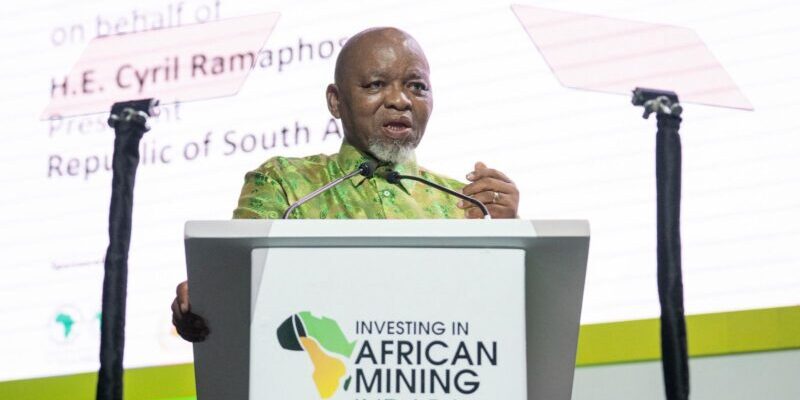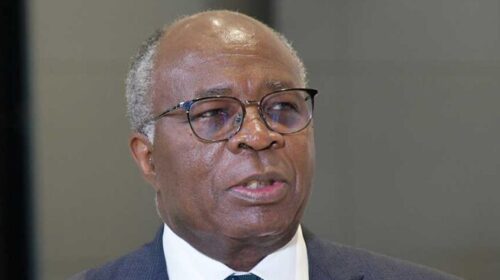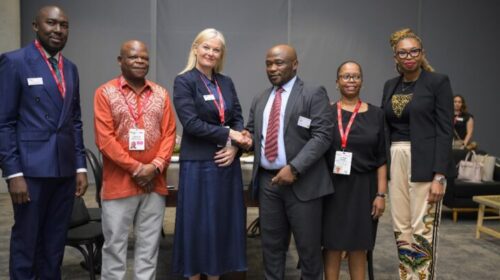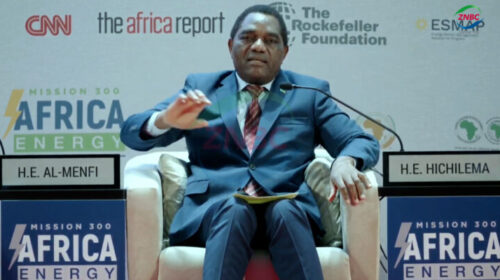South Africa Charts a New Path for Mining at the 2025 Investing in African Mining Indaba
Cape Town, 3 February 2025 – The 31st edition of the Investing in African Mining Indaba, held under the theme “Future-Proofing African Mining, Today!”, opened with keynote remarks from South Africa’s Minister of Mineral and Petroleum Resources, Mr. Gwede Mantashe.
The conference, attended by dignitaries including President Cyril Ramaphosa, industry leaders, investors, and community representatives, serves as a pivotal platform for discussions on Africa’s mineral wealth and its equitable distribution.
Minister Mantashe emphasized the significance of Africa’s vast mineral reserves and the urgent need to ensure local beneficiation.
He cited a 2024 study conducted by Mintek, in collaboration with the industry, which reaffirmed Africa’s position as a mineral-rich continent with substantial reserves of manganese, copper, coal, nickel, cobalt, titanium, vanadium, lithium, and rare earth elements.
Despite its resource abundance, Africa remains economically disadvantaged, a disparity Mantashe insists must change. He called on African nations to take control of their resources rather than adhering to external dictates that prioritize foreign economic interests over local industrialization.
While gold production has declined due to increasing extraction complexities, South Africa remains a key player in the global mining landscape.
In 2023, the country produced 96 tonnes of gold, ranking as Africa’s fourth-largest gold producer. The Platinum Group Metals (PGM) sector remains a cornerstone of South African mining, with PGM production reaching 285 tonnes in 2021, the highest in a decade.
South Africa remains the leading global supplier of PGMs, contributing 73% of platinum, 38% of palladium, and 81% of rhodium to international markets.
One of the key challenges identified is the low level of local mineral beneficiation. Minister Mantashe highlighted that although South Africa holds 37% of the world’s manganese reserves and produced 7.2 million tonnes in 2023, only 2% is processed domestically.
To address this, the government will intensify efforts to encourage local value addition and beneficiation, ensuring that Africa derives greater economic benefits from its natural resources.
However, beneficiation efforts require a consistent and affordable energy supply. Mantashe reassured investors that South Africa has experienced over nine months without electricity interruptions and that the government is working to further reduce electricity costs and introduce commodity-linked tariffs to support local processing industries.
Recognizing the importance of exploration in sustaining the mining sector, Mantashe reported progress on South Africa’s Exploration Fund, launched at the previous Mining Indaba. Notably, three of the eight funded projects are 100% black-female-owned, while all others have over 50% black ownership.
Additionally, between February and March 2025, twenty new projects will receive R67 million in funding, supporting small-scale and artisanal mining operations.
To enhance efficiency and transparency, the Department of Mineral and Petroleum Resources is finalizing a new mining licensing system.
The system, currently in its design and configuration phase, will streamline client management, rights applications, and tracking. Alongside this, the department has been actively clearing the backlog in mining applications, having processed 114 mining rights, 982 prospecting rights, and 385 mining permits between early 2024 and December 2024.
Minister Mantashe commended the South African mining industry for achieving its lowest-ever recorded mine fatalities, emphasizing that collaborative efforts are bringing the industry closer to the goal of zero harm.
As South Africa assumes the G20 presidency, Mantashe urged African leaders and investors to seize this opportunity to shape a new era of mining that fosters socioeconomic development.
He stressed the importance of strategic partnerships that prioritize Africa’s interests while avoiding exploitative agreements that perpetuate economic disparity.
The 2025 Mining Indaba sets the stage for a more self-reliant and prosperous African mining sector. With continued focus on local beneficiation, regulatory reforms, and strategic investment, South Africa and the broader continent are well-positioned to maximize the benefits of their mineral wealth for future generations.
“Africa is the world’s richest mining jurisdiction, yet it remains poor. This must change.” – Minister Gwede Mantashe.
![]()





